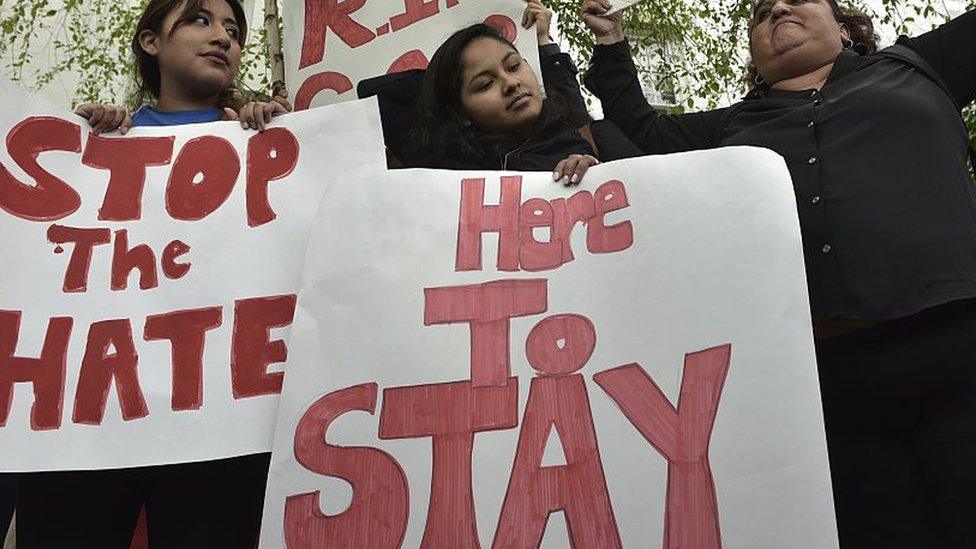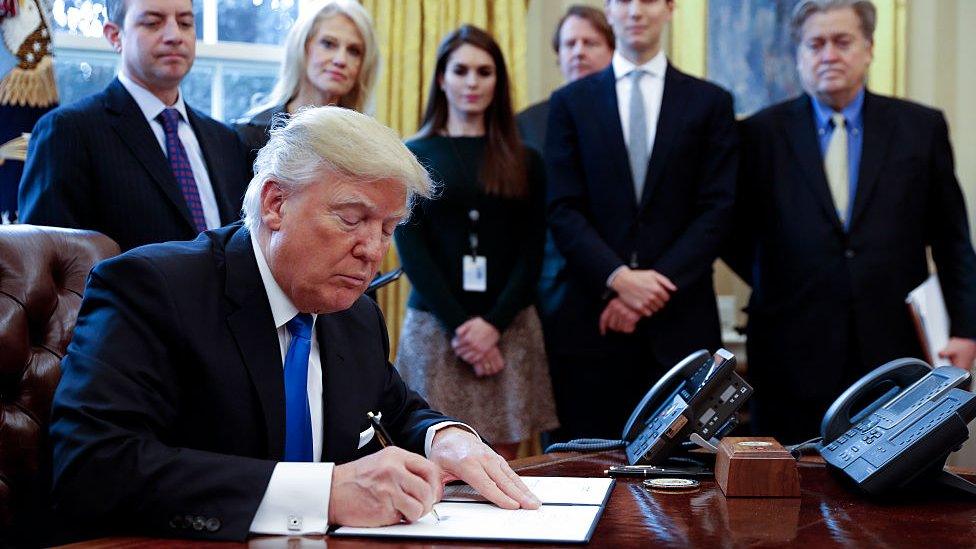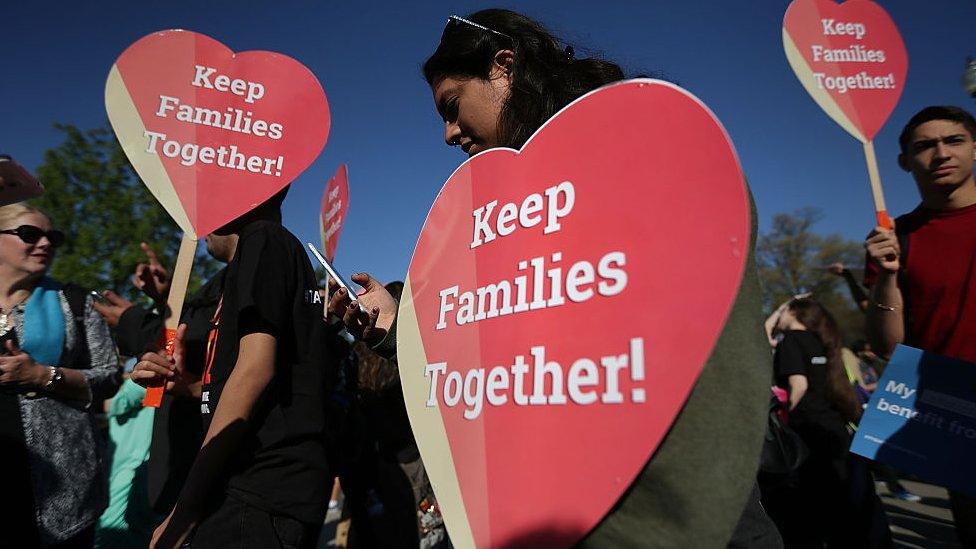The immigration topic Trump keeps avoiding
- Published

Donald Trump has signed a raft of measures on immigration but one subject the president and his staff have avoided so far is their promise to tackle undocumented migrants who entered the US as children.
Over the past few years Mr Trump and other conservatives had roundly decried what they viewed as Barack Obama's unconstitutional unilateral executive action initiated in 2012 to defer deportation proceedings for undocumented immigrants who entered the US as children and family of immigrants with permanent US residency.
The programmes, known by their acronyms Daca (Deferred Action for Childhood Arrivals) and Dapa (Deferred Action for Parents of Americans), were the Obama administration's response to successful efforts by Republicans in Congress to block comprehensive immigration reform.
Although Dapa has been suspended pending resolution of a lawsuit filed by Republican-controlled states, Daca has given temporary normalised residency status to more than 750,000 undocumented immigrants during the Obama presidency. Many anti-immigration activists viewed the policy as ripe for quick reversal under President Trump - a belief candidate Trump actively encouraged.
"We're going to be unsigning a lot of executive orders, especially his order that basically lets anybody they want just pour into our country," Mr Trump said, external at a December 2015 campaign rally when asked by an audience member what he'd do in his first days as president. "That's going to end."
The Trump campaign website featured a promise to "immediately terminate President Obama's two illegal executive amnesties" - Daca and Dapa.
So far, however, it hasn't turned out that way, and recent indications are that sweeping actions - such as an all-out repeal of Daca - may not be in the cards.
On Sunday, when asked about the issue, White House Chief of Staff Reince Priebus refused to be pinned down.
"I think we're going to work with House and Senate leadership as well to get a long-term solution on that issue," he said.
In his first two news conferences, press secretary Sean Spicer was also pressed on why Mr Trump hadn't yet taken any action - and he punted the issue into the long grass.

Some of Donald Trump's supporters are dismayed he has yet to take action on immigration issues
"With respect to Daca I think he's considering to make sure that his cabinet-level team starts to organise and create a plan to move forward with respect to that issue," he said on Tuesday. "That's where we are right now."
The previous day he had said the Trump administration had more pressing concerns.
"I think the president has been clear that he is going to prioritise the areas of dealing with the immigration system, both building the wall and making sure that we address people who are in this country illegally," he said. "First and foremost, the president's been very, very clear that we need to direct agencies to focus on those who are in this country illegally and have a criminal record or pose a threat to the American people."
Meanwhile, according to, external Politico, the Department of Homeland Security, in the absence of any administration directive to the contrary, continues to process deportation deferral and work permit requests as they had under Mr Obama.
Taken together, these comments and inaction have some Trump supporters up in arms.
"Every president over-promises and under-delivers. That is to be expected," writes, external the Conservative Review's Daniel Horowitz. "But there is no excuse for maintaining any shred of Obama's amnesty. That is a red line."
Caleb Howe of the conservative RedState blog says Mr Trump's delay on immigration "is already a betrayal of what a large chunk of his voters sent him there to do".
"Obama's executive amnesty continues uninterrupted, contrary to Trump's campaign vows, with new applications processed daily," he writes, external. "I believe in Washington, DC they call that 'business as usual'."

Unlike wall-building, Daca repeal does not have broad popular support
Daca has put the Trump administration in a difficult spot. While it was easy to condemn Mr Obama's moves on immigration on constitutional grounds, actually changing the policies will come with a political price.
Unlike wall-building or deportation of violent criminals, Daca repeal lacks widespread popular support. In a November poll, external, 58% were in favour of maintaining the policy.
Undocumented immigrants who came across the US border as children - who have lived in the country for most of their lives and had no say in where they were raised - present a sympathetic face, and, quite possibly, a potent electoral issue for Democrats.
The Trump administration's delay in acting may reflect behind-the-scenes discussions over how to delicately extricate the president from his promises while keeping his anti-immigration base from descending into garment-rending levels of rage.
A slow phase-out, with certain guarantees for those currently covered by Daca, could likely accomplish the former, but it may already be too late to prevent the latter.